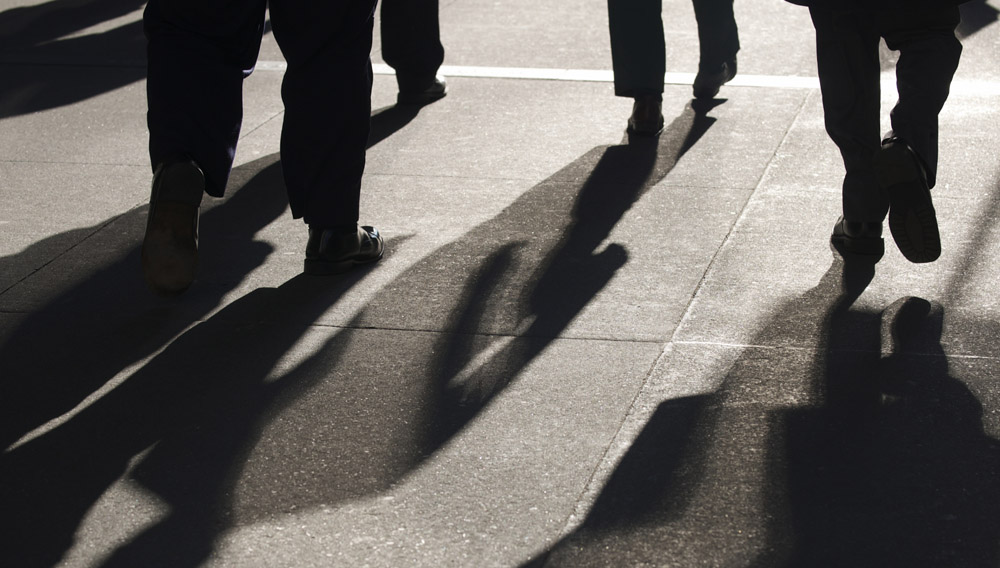Violence against women is a serious human rights violation – Finland to introduce stronger measures to help victims

Monday 25 November is the International Day of the Elimination of Violence against Women. This week, the Ministry of Social Affairs and Health and its partners will highlight the need to reduce violence against women and children and domestic violence on a number of occasions, including two side events of Finland’s Presidency of the Council of the European Union.
Violence against women is a serious human rights violation. The UN estimates that one in three women worldwide experience physical or sexual violence, often from an intimate partner. Violence against women is mostly hidden and hushed up. However, everyone has a duty to intervene in violence.
EU statistics show that much remains to be done before Finland can eradicate violence against women. The Council of Europe Convention on preventing and combating violence against women and domestic violence (the Istanbul Convention) took effect in Finland on 1 August 2015. As a result, Finland has stepped up its work to prevent sexual violence and help victims, and it continues to seek more efficient ways of combating violence.
Every administrative branch, from healthcare and social services to crime prevention, must do better in recognising and combating violence against women. It is also important to promote gender equality and help women identify their economic rights and other rights.
Violence has many forms and harmful effects
Violence or the threat of violence can be physical, emotional or sexual. It can be intimate partner violence or domestic violence and take the form of emotional submission, intimate partner rape, hitting, kicking and beating, and can at worst be fatal. It includes sexual harassment, child sexual abuse, forced marriage, and online and street harassment and persecution. It can take the form of trafficking-related subjugation and sexual exploitation, or of female genital mutilation, child marriage and honour-based violence.
Violence has harmful psychological, sexual and reproductive consequences. Although anyone can become a victim of violence, some groups of girls and women are more vulnerable than others, especially if they are young, disabled, immigrants, refugees or from ethnic minorities or if they identify themselves as lesbian, bisexual, transgender or intersex.
Free help for victims of violence – through helplines, shelters and support centres
Around the clock, every day of the year, the helpline Nollalinja at 080 005 005 offers help and advice to women who experience violence, to victims of intimate partner violence and domestic violence and their friends and families and to professionals helping victims of violence. Anyone can phone the helpline without giving their name, and all calls are confidential. Nollalinja is staffed by trained and experienced professionals in healthcare and social services, who are there to give support and advice.
In recent years, Finland has expanded considerably its network of shelters for victims of domestic violence. Access to the free-of-charge shelters has improved and client numbers have increased. Shelters offer protection against violence and help end the cycle of violence. They provide professional support, counselling and guidance in acute situations.
There are four low-threshold research and support centres for victims of sexual violence in Finland. These Sexual Assault Support Centers (Seri Support Centers) operate as part of the university central hospitals in Helsinki, Turku, Tampere and Kuopio. A fifth centre will start its operations at the Oulu university central hospital in February 2020. The centres mean that victims of sexual violence can get all the help they need in one place. Among the services offered are forensic examinations, laboratory tests, medication and vaccination, overall assessment of the situation, acute psychosocial support, guidance and continued care. The centres will also provide information on other support services available. Victims of sexual violence have better chances of getting long-term assistance through the centres.
A Multi-Agency Risk Assessment Conference (MARAC) method has been introduced across Finland to help past and current victims of serious intimate partner violence. A multi-agency working group puts together personal safety plans to safeguard victims of intimate partner violence. In 2019, there has been 37 local MARAC groups in operation in Finland.
Child Advocacy Centre on its way to Finland
Supported by the Ministry of Social Affairs and Health, the Finnish Institute for Health and Welfare (THL) is coordinating the work to develop the activities of the Nollalinja helpline and the network of shelters for victims of domestic violence. THL will also further strengthen activities of the Seri Support Centers and MARAC groups.
In 2019, THL launched a Barnahus project to mainstream activities compliant with the Child Advocacy Centre model. The aim is to safeguard that child-centred and multi-agency investigation into sexual and violent crimes be started without delay and that children and families receive sufficient support and treatment when they need it.
Inquiries:
Ministerial Adviser Pirjo Lillsunde, tel. +358 295 163 177
Tanja Auvinen, Director, tel. +358 295 163 715
Related side events of Finland’s Presidency of the Council of the European Union:
- Supporting non-violent and participatory childhoods, 26 November 2019
- Stop the backlash – stop domestic violence, 26–27 November 2019
- Seminar: “Two years from reporting an offence to verdict: How to expedite investigative and judicial proceedings on crimes against children”, 28 November 2019
Online:
- Preventing domestic and intimate partner violence
- Prevention of domestic and intimate partner violence (in Finnish) (THL)
- Council of Europe campaign to end violence against women
- UN Women Executive Director’s Statement for the International Day for the Elimination of Violence against Women, 25 November 2019
- Declaration on the Elimination of Violence against Women